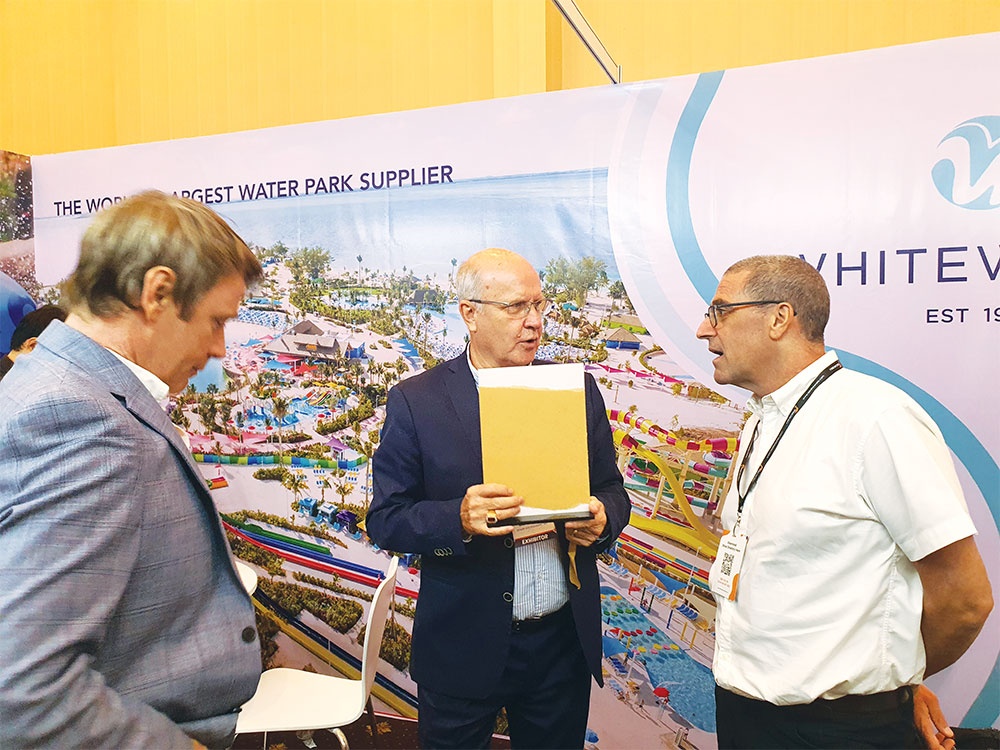Partnerships the key for next 35 years of foreign investment
Themed “Strong investment partnerships for a thriving Vietnam”, the event under the auspices of the Ministry of Planning and Investment is to have the participation of representatives from ministries, international organisations, and representatives of foreign business associations in Vietnam.
 |
| Partnerships the key for next 35 years of foreign investment |
Successful domestic and international businesses in manufacturing, services, retail, real estate, tourism, education, banking, agriculture, energy, and more will also present both their journeys and future plans in keynote speeches and panel discussions.
They include Samsung Vietnam, VPBank, DKSH, UOB Vietnam, Hoiana Resort & Golf, Nestlé Vietnam, Asia Ingredients Group, the German Development Agency, AEON Vietnam, KPMG, CME Solar Investment, JLL Vietnam, and British University Vietnam.
Among the speakers will be Nguyen Mai, chairman of the Vietnam Association of Foreign-Invested Enterprises; Do Van Su, director general of the Foreign Investment Agency (FIA) under the Ministry of Planning and Investment; and Phan Huu Thang, the FIA’s former director general.
To welcome new waves of foreign investment, such experts said that Vietnam should prepare improvements such as more developed infrastructure, highly skilled labour supply, and increasing capacity of domestic enterprises to join the value chain. At the same time, the nation also requires new investment support and incentive policies in the context of the upcoming implementation of a global minimum tax from 2024, in order to increase competitiveness and harmonise investors’ interests.
All of the issues will be on the table at the May 15 event, and there are hopes of finding possible solutions to increase Vietnam’s attraction in the months and years to come.
Since Vietnam opened its doors to draw in overseas funding through the promulgation of the Law on Foreign Investment in 1987, foreign-invested enterprises (FIEs) have been an integral part of the country’s economy. Vietnam has gone out of its way to encourage foreign investment in order to bring into play external forces, arouse the spirit of creativity, and resonate with internal strengths to promote the development of Vietnam’s economy.
Minister of Planning and Investment Nguyen Chi Dung said, “Foreign investors have brought with them capital, experience, technology, and more to Vietnam to contribute to the formation of a number of key industries in the country, such as oil and gas, electronics, telecommunications, and more.”
FIEs have also promoted technology transfer to Vietnam, improved the economy’s technology adoption, and put pressure on domestic enterprises to actively innovate technology to improve their competitiveness, he added.
“At the same time, FIEs have made important contributions to Vietnam’s international integration process, expanding relations with other countries, as well as enhancing Vietnam’s status in the region and the wider world,” Minister Dung said.
By April 20, Vietnam accumulated around $446 billion of registered foreign investment, with nearly $280 billion being disbursed. Many multinational corporations and large foreign-invested enterprises with modern technology have been investing and expanding in the nation over the past few decades, with increasing quality and efficiency, such as SABECO, Piaggio, Panasonic, HSBC, Dragon Capital, Frasers Property Vietnam, and Gamuda Land.
Vietnam currently gives priority to investment attraction and cooperation that involves quality, efficiency, more modern technology and environmental protection as the main evaluation criteria. Further focus is given to attracting projects involving high technology, innovation, and research and development; creating stronger conditions for Vietnamese enterprises to participate in the value chain; and promoting the digital economy, green economy, and circular economy.
Talking to VIR, Gabor Fluit, chairman of the European Chamber of Commerce in Vietnam, said, “European investment in Vietnam is not only on the rise, but is also showing no signs of slowing down. All parties are exploring ways to enhance their cooperation in many key areas such as digitalisation, renewable energy, healthcare, and sustainable development.”
What the stars mean:
★ Poor ★ ★ Promising ★★★ Good ★★★★ Very good ★★★★★ Exceptional
 Tag:
Tag:
Related Contents
Latest News
More News
- US firms deepen energy engagement with Vietnam (February 05, 2026 | 17:23)
- Vietnam records solid FDI performance in January (February 05, 2026 | 17:11)
- Site clearance work launched for Dung Quat refinery upgrade (February 04, 2026 | 18:06)
- Masan High-Tech Materials reports profit: a view from Nui Phao mine (February 04, 2026 | 16:13)
- Hermes joins Long Thanh cargo terminal development (February 04, 2026 | 15:59)
- SCG enhances production and distribution in Vietnam (February 04, 2026 | 08:00)
- UNIVACCO strengthens Asia expansion with Vietnam facility (February 03, 2026 | 08:00)
- Cai Mep Ha Port project wins approval with $1.95bn investment (February 02, 2026 | 16:17)
- Repositioning Vietnam in Asia’s manufacturing race (February 02, 2026 | 16:00)
- Manufacturing growth remains solid in early 2026 (February 02, 2026 | 15:28)


















 Mobile Version
Mobile Version